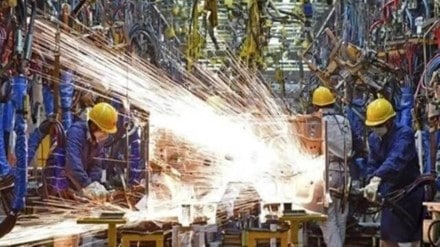The commerce and industry ministry will meet representatives of top India’s 100 listed companies on Saturday for suggestions on reforms required to improve business environment and ideas on pushing manufacturing growth and exports.
The meeting will be held in Mumbai and invites have been sent out to top 100 companies listed on BSE and NSE for participation. The meeting will be chaired by commerce and industry minister Piyush Goyal and will also see participation of commerce secretary Sunil Barthwal and secretary in the department for promotion of industry and internal trade (DPIIT).
The meeting will be held in an interactive format to elicit ideas and suggestions of the industry on increasing the share of manufacturing in India’s GDP and promote self-reliance in manufacturing.
Manufacturing accounted for 14.7% of India’s Gross Domestic Product in 2022-23.
The share has been languishing around this figure for the past decade despite many efforts made to increase it to 25%.
Other discussion at the meeting will be on increasing India’s share in global merchandise and services trade.
According to a report by the World Trade Organization, India’s share of global merchandise exports stood at 1.8% in 2022 and it is ranked 18th on the list of top exporters. Efforts have been made for the past many years to take it beyond 2%. With the slowdown seen in exports in the past seven months due to global demand slowdown, the task becomes more difficult.
India’s share of global services exports is 4.4% and is ranked 7th in the world.
The Commerce and Industry Ministry will also seek inputs from the industry on reforms that should be undertaken to unlock economic development and improve the business environment.
Government on its part has been coming out with different schemes at regular intervals to push investment in manufacturing. Apart from lower income tax, it has committed Rs 1.97 trillion for the Production Linked Incentive Scheme for manufacturing which will provide cash benefit to companies for incremental production in 14 priority sectors.
To create space in the local market it has been trying to discourage imports of many products that can be produced locally. Apart from increasing tariffs, it has prescribed or is in process of prescribing mandatory quality standards for both local manufacturers and imports.
